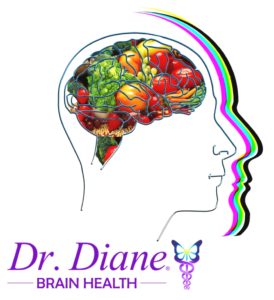Trans Fats and Memory
Trans Fats – Wreaking Havoc on your Memory?
As you may have seen in the news this past week, the Obama administration has pledged to phase trans fats completely out of the American food supply. The FDA has concluded that trans fats are “not generally recognized as safe” for human consumption, and food companies will have three years to remove them entirely from their products. This is great news since trans fats adversely affect your brain health.
 Trans fats, also known as partially hydrogenated oils (PHO’s) are created when hydrogen is added to vegetable oil to create a fat that is solid at room temperature. These trans fats or PHO’s can be found in many common processed foods such as margarine, vegetable shortening, processed cheese, pre-made cake frosting, microwave popcorn, oil for fast food deep-frying, and more. Trans fats are cheap to make and are often used to enhance food’s texture, shelf life and/or flavor. But not only do trans fats have no known health benefits, they have very detrimental effects on the human body.
Trans fats, also known as partially hydrogenated oils (PHO’s) are created when hydrogen is added to vegetable oil to create a fat that is solid at room temperature. These trans fats or PHO’s can be found in many common processed foods such as margarine, vegetable shortening, processed cheese, pre-made cake frosting, microwave popcorn, oil for fast food deep-frying, and more. Trans fats are cheap to make and are often used to enhance food’s texture, shelf life and/or flavor. But not only do trans fats have no known health benefits, they have very detrimental effects on the human body.
Our bodies need natural fats to perform a variety of important functions. But trans fats do not behave the same way as natural fats do in the body; instead, they make our systems go haywire.
Trans fats are widely known to raise “bad” LDL cholesterol (which can lead to plaque buildup in your arteries) while lowering “good” HDL cholesterol (which helps to flush the bad cholesterol away from your arteries, and can actually reduce your chance of stroke or heart disease). Trans fats also raise levels of lipoprotein, a marker for coronary heart disease, especially in those who already have high levels of lipoprotein. High consumption of trans fats can lead to a multitude of serious health complications including cancer, diabetes, low birth rate, obesity and immune dysfunction as well as heart disease.
And trans fats have a major effect on the health of the brain.
How Trans Fats Affect Your Brain
Our brains rely on natural fats to create and maintain their cell membranes. Trans fats do nothing to assist with this process, and even worse, they can actually destroy cells.
Trans fats also wreak havoc on hormone production. In males, high consumption of trans fats can decrease levels of testosterone and increase levels of abnormal sperm. In pregnant females, consuming high levels trans fats can interfere with their infant’s development. Not only that, when nursing mothers consume a diet high in trans fats, their infants show a significant decrease in their development of visual acuity.
Trans fats can increase inflammation in the brain and heart and can contribute to the incidence of diabetes, obesity, and more. This inflammation may also inhibit the body’s production of Omega-3 fatty acids, which are critical to proper brain function.
 A recent study has suggested that trans fats adversely affect memory. In a test of word recall performed by scientists at UC San Diego, middle-aged and younger subjects who consumed high amounts of trans fats were able to recall significantly fewer words than subjects who ate less trans fat. There was a direct, quantifiable link between the number of words recalled and the prevalence of trans fats in the subject’s diet. The subjects who ate no trans fats performed the best.
A recent study has suggested that trans fats adversely affect memory. In a test of word recall performed by scientists at UC San Diego, middle-aged and younger subjects who consumed high amounts of trans fats were able to recall significantly fewer words than subjects who ate less trans fat. There was a direct, quantifiable link between the number of words recalled and the prevalence of trans fats in the subject’s diet. The subjects who ate no trans fats performed the best.
Last but not least, several studies have shown that high levels of trans fats may reduce serotonin production in the brain, leading to depression as well as adversely affecting memory.
Our bodies do need fats to function properly. But trans fats do us more harm than good.
Fats That Are Good For You and Your Brain:
Monounsaturated Fats:
These fats can be found in olive oil, sesame oil, peanut butter, nuts, seeds and avocados. This kind of fat is a staple of the healthy “Mediterannean diet.” Consumption of these “good” fats can actually lower your risk of stroke or heart disease. Inversely to trans fats, monounsaturated fats lower your “bad” LDL cholesterol while maintaining your levels of “good” HDL cholesterol.
Essential Fatty Acids (EFA’s):
These fats come in two types, Omega-3 and Omega 6. Omega-3 (linoleic acid) is found in very high concentrations in nuts and seeds, grass-fed animal meat and free-range chicken eggs. Omega-6 (linolenic acid) can be found in flaxseed, green leaves, some grains and seeds, walnuts, chia, many fish oils, grass-fed animal meats and organs, oysters, and shrimp. All essential fatty acids perform a whole host of functions including assisting with brain and nerve tissue development, reducing inflammation, regulating mood and strengthening the immune system. It is important to ensure that you are getting an adequate amount of EFA’s in your diet, as your body cannot produce them by itself.
Natural Saturated Fats:
These include coconut and palm oils, egg yolks, butter, cream, lard, and other animal fats. These natural saturated fats have been incorrectly blamed for the problems caused by unnatural saturated fats, or trans fats. Healthy saturated fats can lower lipoprotein and improve cardiovascular risk factors, as well as allowing calcium to be incorporated into bone, supporting lung health and a strong immune system, and strengthening the cells in your brain. It is important to get some saturated fat in your diet every day.
All of these natural fats provide the building blocks for cell membranes and act as carriers for fat-soluble vitamins A, D, E, and K.
Trans Fats by Any Other Name
Trans fat is the only kind of fat that can offer no health benefit to your body or brain. With a little effort, you can eliminate trans fats from your diet entirely. Many large fast food chains have already stopped using trans fats in their products. However, many have substituted esterified fat, which is just as bad for you. If you are unsure, ask questions, check labels, and avoid processed foods and fried foods that you do not prepare yourself. Also avoid foods which ingredient lists include partially hydrogenated vegetable oil or esterified fats.
Instead, consume natural fats such as olive oil, coconut oil, nuts, butter, and cream for better body and brain health.
Do you want to learn more about which foods/fats are best for you?
Have a customized, brain-healthy diet free of trans fats created just for you by Dr. Diane®!
Or to schedule a nutritional assessment with our nutrition educator Martha Lindsay, MS, CNE, a member of Dr. Diane’s Integrative Team of Brain Health Experts, please call 800-500-9971 or fill out an online contact form.
RESOURCES:
Know Your Fats by Mary G. Enig Ph.D, 7th printing 2006.
Gut and Psychology Syndrome by Dr. Natasha Campbell-McBride, revised ed. 2010.
The Great Cholesterol Con by Dr. Malcolm Kendrick, 2007.
The High Blood Pressure Hoax, by Dr. Sherry Rogers, 2005.
Put Your Heart in Your Mouth, by Dr. Natasha Campbell-McBride, 8th reprint 2013.
There Is A Way!™
– Dr. Diane®
Blog contributors: Dr. Diane Roberts Stoler, Ed.D. and Martha Lindsay, MS, CNE, certified in Nutrition Response Testing SM, GAPS certified practitioner


